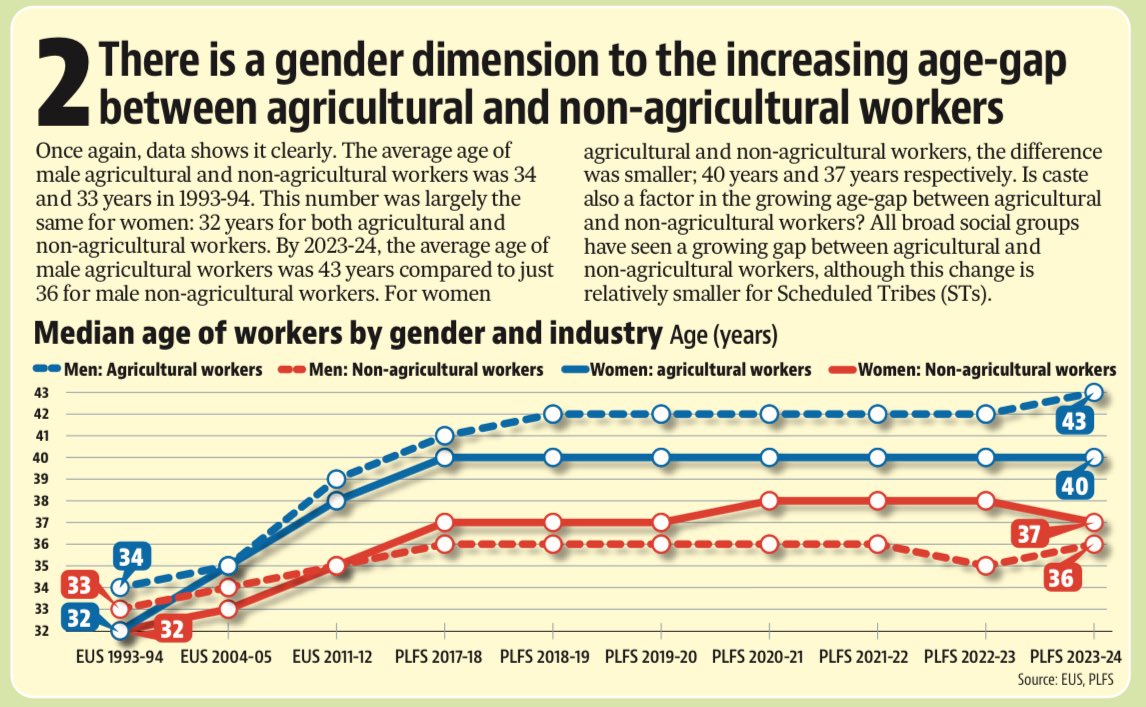1/n: A slightly theoretical thread on the political economy of #farmersbill "passed" by the RS.
In 1998 Utsa Patnaik wrote an essay called India’s Agrarian Economy & New Contradictions Following Liberalization for the CPI(M)'s theoretical journal. cpim.org/content/agrari…
In 1998 Utsa Patnaik wrote an essay called India’s Agrarian Economy & New Contradictions Following Liberalization for the CPI(M)'s theoretical journal. cpim.org/content/agrari…
2/n: Mandatory disclosure: Utsa, who is among the most eminent Marxist scholars on Indian agriculture (& became famous by arguing in favour of capitalist dev in Indian agriculture against veterans in the now famous Mode of Production debate) was my supervisor in CESP, JNU
3/n: Utsa's essay created a huge controversy within the CPI(M) ranks. It was against the party's programmatic understanding. She argued that the primary contraction within the agrarian economy was no longer between "mass of the working peasantry and labourers on the one hand...
4/n: ...and on the other hand the minority of landlords, traders and money lenders who monopolized control over land and money-capital, thereby exploiting the peasantry through rent, interest and exorbitant traders’ margins"
5/n: "In the agrarian sphere the emerging new contradiction is now between all the peasant classes in rural areas on the one hand, and imperialism with its local landed collaborators on the other hand", the essay argued.
6/n: The all powerful Kisan Sabha (the left was still in power in WB) which had always championed land reforms, was outraged and saw this as a justification for collaborating with the landlords. Prakash Karat was in two minds about publishing the essay but ultimately did.
7/n: Cut to the present: I disagree with the basic Utsa-Prabhat argument on imperialism & have realised the importance of agriculture outside growing staple cereals. My field visits have made me realise that farmers want greater commercial engagement with both dom and int mkts
8/n: But Utsa's hypothesis holds true for India's foodgrain economy, except the fact that it is domestic capital which is all set to appropriate a larger part of farm surpluses today rather than an imperialist force. The state is actively aiding this process via these bills
9/n: The green revolution elite in Punjab, Haryana & Western Uttar Pradesh can see this coming. That is why they are protesting against these bills. Their local socio-economic clout (& oppressive machinery) is nothing compared to the might of companies which will gain entry now
10/n: Utsa's once controversial theoretical line is being implemented in praxis today. The Kulak class of Indian agriculture, which once demonised communists as land-grabbers, is on the same side as the communists in the struggle against the govt's reform
11/n: This is a process which will eventually also antagonize the small-trader class. He will find it impossible to compete against the big retail giants, who would tend to acquire both a monopsonist's and monopolist's status in wholesale & retail food markets.
12/n: Govt is claiming that the reforms will increase prices for farmers. They could ultimately facilitate a drain of wealth away from villages. Local elite spend most of their money locally. Corporations won't. Take out a few thousand crore every year from Punjab's villages.
13/n: None of this means that the BJP will necessarily suffer politically. It often discounts the support of dominant castes from electoral calculations. The rural underclass might actually celebrate the erosion of local elite's prosperity and derived political clout
14/n: In celebrating the destruction of the local elite, however, the underclass will also destroy the bargaining power of the agrarian sector in the terms of trade struggle and, reconcile to living on government doles.The question is, can the cornered elite rally the underclass?
n/n: Only one person can be looked upon when it comes to handling the contradiction of preventing justified underclass anger against the oppressive social elite in India. Gandhi. The struggle of farmers and small capital against big capital needs to learn a lot from him.
• • •
Missing some Tweet in this thread? You can try to
force a refresh


















